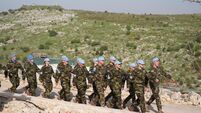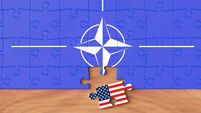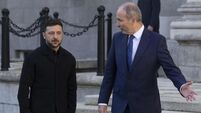Declan Power: Ireland must develop security partnerships and leverage existing arrangements

Badges of staff members in a Nato aircraft. Ireland can pursue security partnerships without the need to join Nato. Picture: Ina Fassbender/AFP via Getty Images
















